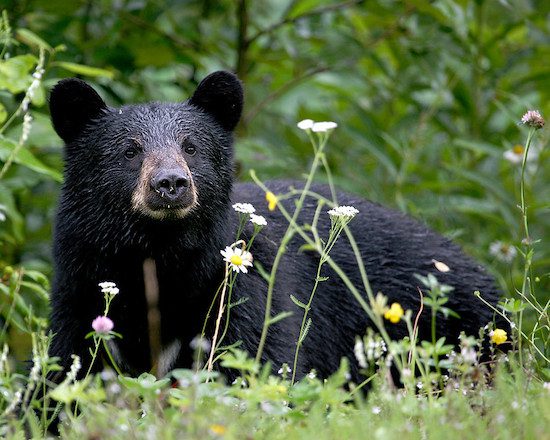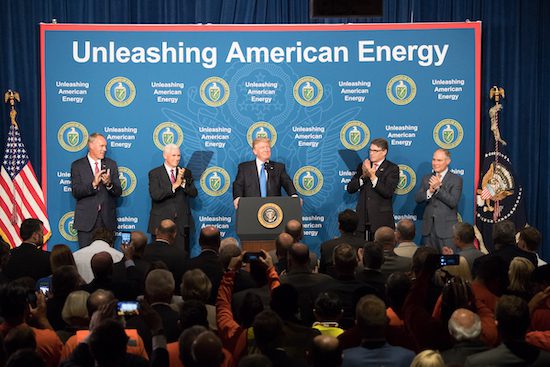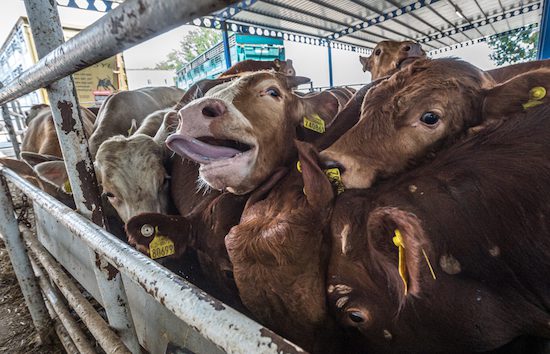


Appalachia Georgia Friends of the Bears: In Georgia, there are three distinct populations of black bears: North (aka Appalachia), Central and South Georgia. The population estimates are 3,000, 30 and 800 respectively, according to the Georgia Department of Natural Resource’s Strategic Management Plan for Black Bears in Georgia (2019-2028). Although the American black bear is no longer on the Endangered Species List, the worldwide black market for bear parts and bear bile remains, putting Georgia on the front line of this illegal trade. But there is hope in the form of bi-partisan legislation: H. Res. 2264 – The Bear Protection Act of 2019, and the Senate companion bill. The bill calls for the conservation of global bear populations by prohibiting the importation, exportation and interstate trade of bear viscera and items, products or substances containing, or labeled or advertised as containing, bear viscera.
>>>Urge the Georgia U.S. Congressional delegation to support the Bear Protection Act.
Total Liberation International: Mattress company Casper brought Canada Goose CEO Dani Reiss to join their board of directors in 2019. Casper has been praised by PETA for advertising their mattress as “vegan,” using no animal-based materials. In their ads, Casper also uses photos of happy dogs enjoying the comfort of Casper dog beds. As a company that has used vegan messaging and makes products that benefit animals, Casper should make the ethical decision to cut ties with Dani Reiss, since Canada Goose profits from and supports the mass suffering and death inflicted on countless animals, including coyotes caught in traps, and ducks, geese and sheep held captive inside farms, torn away from their families and denied any comfort in their brutally shortened lives. “While Canada goose has committed to using only “reclaimed” fur for the trim on their $$1,000 parkas beginning in 2020, PETA Executive Vice President Tracy Reiman said that the company “is attempting to ‘humane wash’ its image by switching from fur taken from coyotes whom trappers have recently caught in steel traps to fur that may already be on the market, which is also a product of the cruel actions of trappers.”
>>>Demand both Capser and Canada Goose be held accountable by immediately ending the use of all animals, including down and wool.
Earth Institute at Columbia University: Your carbon footprint is the amount of greenhouse gases—including carbon dioxide, methane, nitrous oxide, fluorinated gases and others—that you produce as you live your life. The Deep Decarbonization Pathways Project determined that in order to hold the global temperature rise to 2˚C or less, everyone on Earth will need to average an annual carbon footprint of 1.87 tons by 2050. Currently, the average U.S. per capita carbon footprint is 18.3 tons. By comparison, China’s per capita carbon emissions are 8.2 tons. We all have a ways to go to get to 1.87 tons. (Renee Cho)
>>>Use the EPA’s carbon footprint calculator to find out how much carbon and money you will save by changing some daily actions.
Cause for concern…

“During the COVID-19 lockdown, U.S. federal agencies have eased fuel-efficiency standards for new cars; frozen rules for soot air pollution; proposed to drop review requirements for liquefied natural gas terminals; continued to lease public property to oil and gas companies; sought to speed up permitting for offshore fish farms; and advanced a proposal on mercury pollution from power plants that could make it easier for the government to conclude regulations are too costly to justify their benefits,” reports Emily Holden for The Guardian.
- Trump dismantles environmental protections under cover of coronavirus (Emily Holden, The Guardian)
- Trump’s farm relief won’t protect essential farmworkers from COVID-19 (Scott Faber, Environmental Working Group)
- Potentially fatal combinations of humidity and heat are emerging across the globe (Earth Institute at Columbia University)
- Climate change will expose agricultural workers to unsafe conditions, warns study (Sam Mehmet, New Food Magazine)
- Suffocating healthy farmed animals during pandemic is not “euthanasia” (Dena Jones, Sentient Media)
- Corporate TV news largely ignored the relationship between environmental justice and COVID-19 (Elvondo Cooper, Media Matters)
- ‘Tiger King’ Joe Exotic was found guilty of 17 counts of wildlife-related federal crimes, including killing five endangered tigers (Danny Prater, PETA)
- More mountain lions to be killed under proposed hunting plan in Colorado (Breanna Sneeringer, OutThere Colorado)
- Food wrapping, fishing gear and plastic waste continue to reach the Antarctic (British Antarctic Survey, ScienceDaily)
- High microplastic concentration found on ocean floor (Jonathan Amos, BBC News)

Round of applause…
- Why this farmer went from raising chickens to growing industrial hemp (Lauri Torgerson-White, NationofChange)
- New proposed legislation aims to help at-risk farmers switch from animal to plant-based agriculture (Anna Starostinetskaya, VegNews)
- Worldwide bee population buzzing back thanks to coronavirus lockdown (Dana Kennedy, New York Post)
- Conservationists sue Trump administration over border wall (Rachel Frazin, The Hill)
- COVID-19 crisis set to eradicate demand for fossil fuels, says IEA (Jillian Ambrose, The Guardian)
- Rather than cull millions of livestock, let’s end animal agriculture (Joseph Winters, Harvard Political Review)
- The story of Charlotte, the rescued calf who was born in a slaughterhouse (Michelle Blake, Sentient Media)
- Spending at least 120 minutes a week in nature is associated with good health and wellbeing (Matthew P. White, et. al., Nature)
- Thai elephants, out of work due to coronavirus, return to their natural habitat (Associated Press)
- Vegans and vegetarians have a 9% lower risk of death compared with omnivores (Alina Petre, Healthline)
- Meet the octogenarian taking care of Lebanon’s abandoned dogs during the coronavirus crisis (Sunniva Rose, The National)
- Fundamental animal rights must be written down in Finnish Constitution, argues researcher (Mari Peltonen, University of Helsinki)
- Naples-Fort Myers Greyhound Track closing after race with no spectators (Greg Hardwig, Naples Daily News)
Parting thought…

“I hope that some of the ways we currently still treat animals, the way that we factory-farm them, for instance, will seem [in the not-too-distant future] completely unbelievable and unacceptable.” —Miranda Fricker
Earth | Food | Life (EFL) explores the critical and often interconnected issues facing the climate/environment, food/agriculture and nature/animal rights, and champions action; specifically, how responsible citizens, voters and consumers can help put society on an ethical path of sustainability that respects the rights of all species who call this planet home. EFL emphasizes the idea that everything is connected, so every decision matters.
Click here to support the work of EFL and the Independent Media Institute.
Questions, comments, suggestions, submissions? Contact EFL editor Reynard Loki at [email protected]. Follow EFL on Twitter @EarthFoodLife.